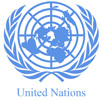Panelists discussed how to include sustainability data in evaluating a country's credit-worthiness, during a panel organized by the UN Economic and Social Council (ECOSOC).
ECOSOC President Martin Sajdik asked participants to consider practical suggestions that could inform the preparatory process for the Third International Conference on Financing for Development (FfD).
 8 December 2014: Panelists discussed how to include sustainability data in evaluating a country’s credit-worthiness, during a panel organized by the UN Economic and Social Council (ECOSOC). ECOSOC President Martin Sajdik asked participants to consider practical suggestions that could inform the preparatory process for the Third International Conference on Financing for Development (FfD).
8 December 2014: Panelists discussed how to include sustainability data in evaluating a country’s credit-worthiness, during a panel organized by the UN Economic and Social Council (ECOSOC). ECOSOC President Martin Sajdik asked participants to consider practical suggestions that could inform the preparatory process for the Third International Conference on Financing for Development (FfD).
The meeting, held in New York, US, on 8 December 2014, explored how UN agencies, regional organizations and countries can collaborate towards a comprehensive, fair and transparent international credit ratings system that supports sustainable development.
World Bank Chief Credit Officer, Merli Baroudi, who moderated the panel, highlighted several areas for improvement, including the need for increased transparency and competition among agencies. Baroudi observed an “excessive reliance” on ratings by issuers, and investors and said ratings can contribute to market volatility.
Bruno Bertocci, UBS Global Asset Management (Americas) Inc., identified climate change and governance supply chains as key inputs for determining a project or industry’s financial viability. He also observed that the evolution of sustainability data has been similar to that of accounting data and standards, which have converged over the past 20 years, making it possible for investors to compare financial data. John Coffee, Columbia University School of Law, suggested an independent body to oversee the process. He said such an agency could reduce conflicts, and include separate ratings for credit-worthiness and sustainability.
Thomas Missong, President of the European Association of Credit Rating Agencies, said the cost of compliance and regulations across markets hinder small companies from entering the business, which further limits market competition. Chee Mee Hu, Moody’s, outlined actions her company had taken to increase the transparency of the ratings process, including through self-policing mechanisms and compliance functions.
Panelists called for, inter alia: increasing transparency; improving competition in the market; increasing coordination of ratings globally; harmonizing ratings across jurisdictions and regions; and addressing conflicts of interest. [UN Press Release]